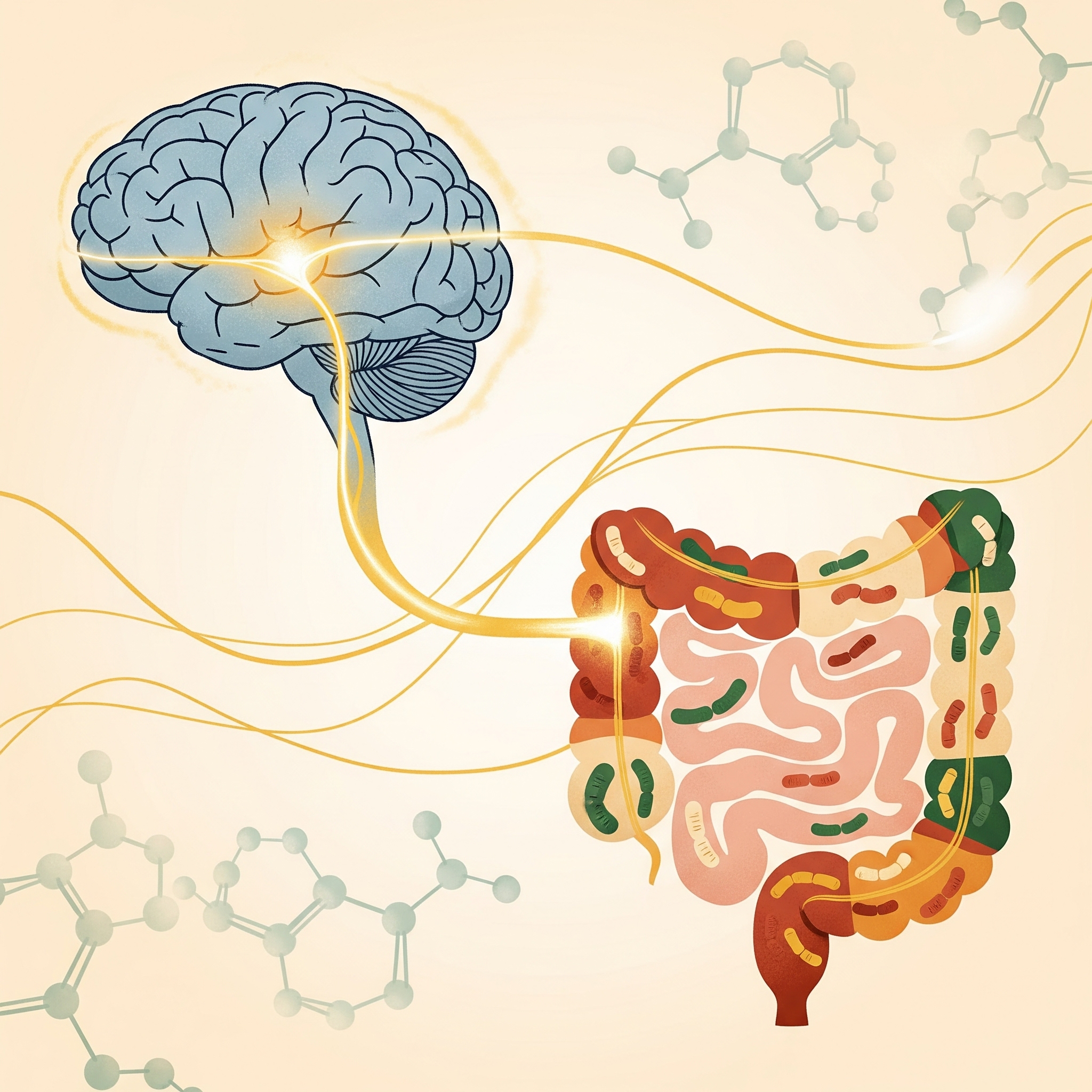

Your way to a vida plena

The hidden link between your gut and migraines: what’s behind it?
Migraine is much more than an ordinary headache. It can last for days, with throbbing pain, nausea, light sensitivity and even visual disturbances. But did you know that the cause of that pain may actually start in your stomach?
In recent years, there has been increasing evidence that the health of your gut, also known as gut flora, plays an important role in the onset and worsening of migraines. What exactly is this about?
What is the gut-brain axis?
The gut and brain constantly communicate with each other through what scientists call the gut-brain axis. This is a complex connection between the central nervous system and the digestive system. Signals are exchanged through nerves (such as the vagus nerve), hormones and immune signals.
Your intestines also produce all kinds of substances that influence your mood, sleep and experience of pain, 90% of which are produced in the intestines. Among these, serotonin is certainly an important one.
A healthy gut contains a balanced mix of good bacteria. But diet, stress, antibiotics or disease can disrupt this balance, a condition called dysbiosis.
Research shows that people with migraines show signs of dysbiosis more often than those without migraines. This can lead to:
All of these factors can affect the brain and contribute to the onset of migraine attacks.
The microbiome and inflammation
Migraine is increasingly seen as a neurovascular inflammatory disease. And what starts in the gut, such as an imbalance of bacteria, can activate inflammatory responses throughout the body, including in the brain. Certain gut bacteria can produce substances that promote inflammation. If these enter the bloodstream, they can trigger an attack.
Interestingly , many people with migraines also have digestive complaints, such as:
This is no coincidence: the brain and intestines constantly influence each other. Migraines can exacerbate intestinal complaints, and conversely, intestinal problems can trigger migraines.
As a child, I was diagnosed with irritable bowel syndrome, and later I experienced frequent alternating bouts of diarrhea and constipation. Addressing my intestinal flora with probiotics was therefore one of the most important steps for me.
Although migraines are a complex condition with no single clear cause, there are ways to improve your gut health that may also reduce your headache symptoms:
Conclusion
The link between gut flora and migraines is a fascinating example of how everything in our bodies is connected. Although much research is still needed, increasing evidence suggests that a healthy gut flora can contribute to fewer migraine attacks. That makes it even more important to take good care of your gut. Maybe that will help your head more than you thought. But realize that certainly the other ways to reduce symptoms can also offer additional relief. The ‘total concept’ offers more!
Fasano A. Leaky gut and autoimmune diseases. Clin Rev Allergy Immunol. 2012 Feb;42(1):71-8.
https://doi.org/10.1007/s12016-011-8291-x
Martami F, Togha M, Rafiee P, et al. The role of the gut microbiota in the pathophysiology of migraine. Cephalalgia. 2021;41(3):304–318.
https://doi.org/10.1177/0333102420974366
Martami F, Togha M, Seifishahpar M, et al. The effects of a multispecies probiotic supplement on episodic migraine: a randomized, double-blind, placebo-controlled trial. Cephalalgia. 2019;39(9):1038–1047.
https://doi.org/10.1177/0333102419834084